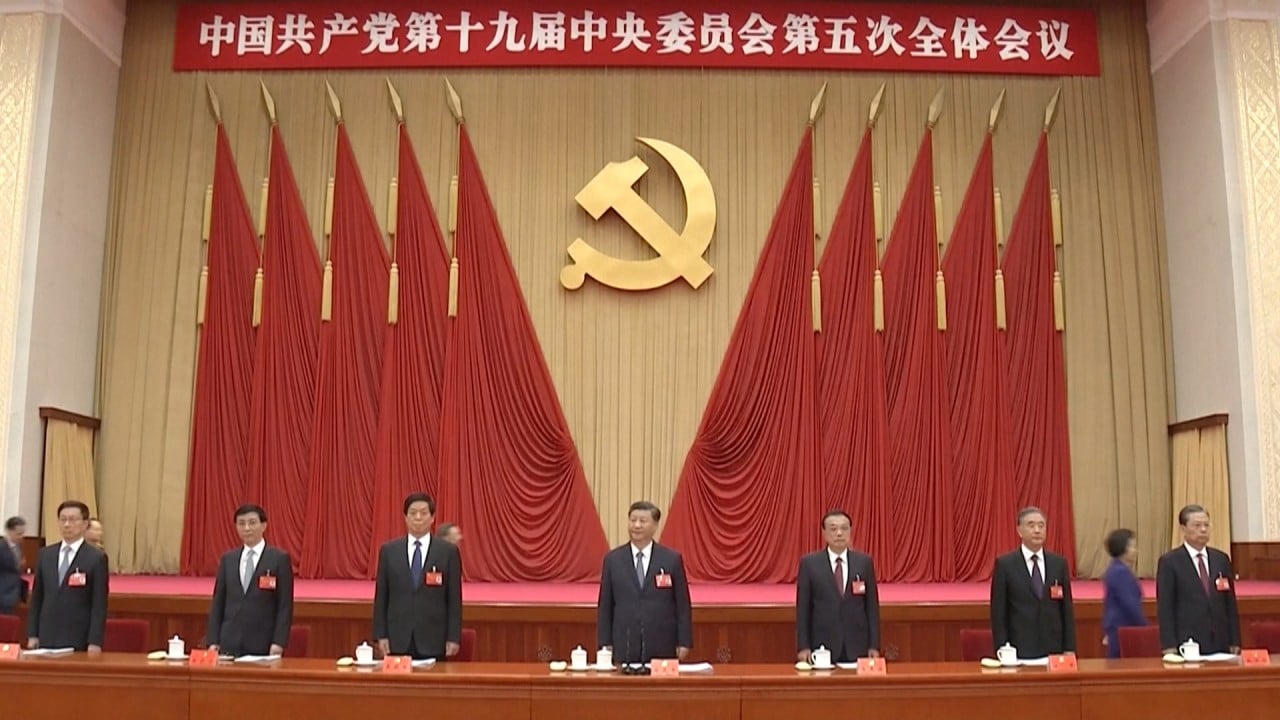
US election will not ease China’s insecurity, no matter who wins
- Close reading of fifth plenum’s communique shows extraordinary concern for national security in Beijing
- Party leadership under no illusion there will be a quick ‘reset’ in relations with Washington under Democratic challenger Joe Biden
The meeting of the party’s elite Central Committee, known as the fifth plenum, showed Beijing harbours no illusions of a looming “reset” in US-China rivalry. Instead, a grim picture emerged of China’s external challenges in an era of free-falling bilateral ties and the still-raging coronavirus pandemic.
“The international environment is becoming increasingly complex, with instability and uncertainty growing significantly,” said the official statement on Thursday, skipping any mention of the US or the imminent election.
Amid its vague and self-congratulatory rhetoric, the plenum’s communique placed an extraordinary weight on the notion of security – a phrase which appeared 22 times and was the most frequently used in the 6,000-word document.
China watchers believe the unusual emphasis underlines a strong sense of crisis and insecurity within the Chinese leadership amid the unprecedented challenges the country is facing at home and abroad.

03:05
What happened at the Chinese Communist Party’s major policy meeting, the fifth plenum?
The clearest articulation of Beijing’s unease was made in August by China’s ambassador to the US Cui Tiankai, who told an online event hosted by the Brookings Institution that the Trump administration’s confrontational approach was an effort to “slow down and contain China’s development and even bring about a regime change”.
For Beijing – still haunted by the sudden collapse of the Soviet Union nearly 30 years ago – nothing is more important than regime stability. That is partly why Beijing has been so hostile towards US Secretary of State Mike Pompeo’s direct criticisms of President Xi Jinping.
The plenum also reinforced Xi’s role as “the core navigator at the helm” – reminiscent of Mao Zedong’s title of “Great Helmsman” in the Cultural Revolution era and an indication of his tightening grip on power. Mapping out Xi’s ambitions for the next 15 years, the plenum said China would achieve “socialist modernisation” by 2035.
It was also clear that, despite the worst anti-China backlash in decades in many parts of the world, the leadership still sees an “important period of strategic opportunities” for its continued rise in a post-coronavirus world.
According to the communique, China remains in an “important period of strategic opportunities” against the backdrop of a “profound adjustment in the international balance of power” – a reference to declining US power and the shifting position between the two countries.
Lastly, with the US mired in a divisive election and the Western world distracted by another surge of coronavirus infections, Beijing’s confidence in the superiority of China’s system has been further bolstered by its emergence, relatively unscathed, from the pandemic crisis.

